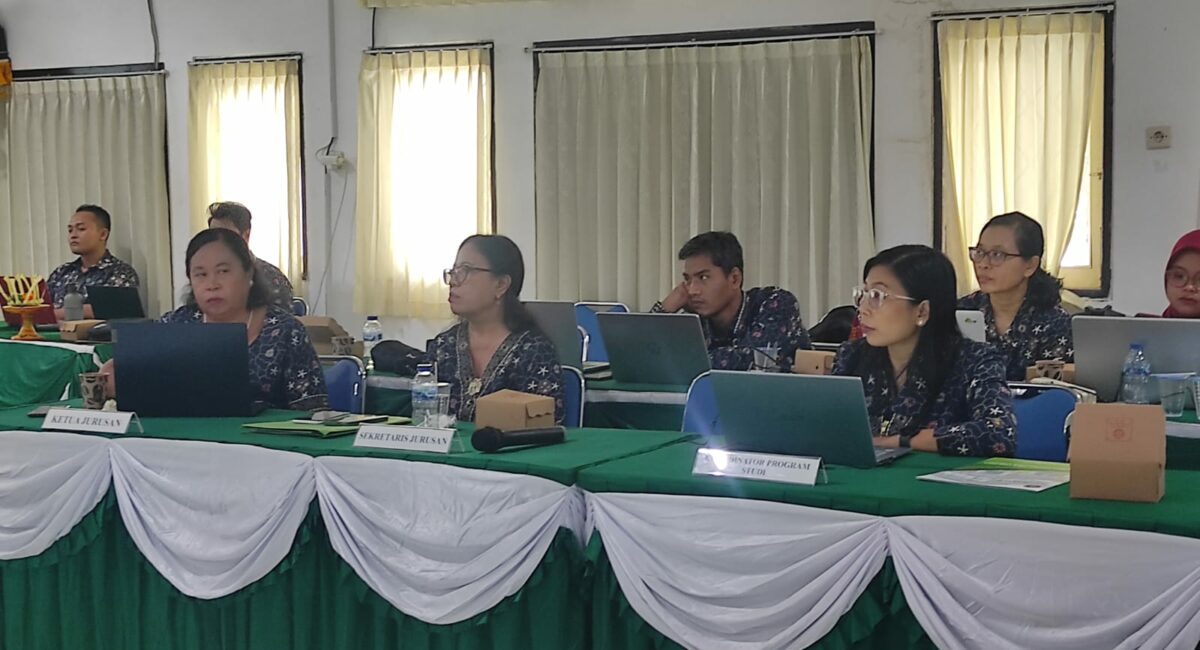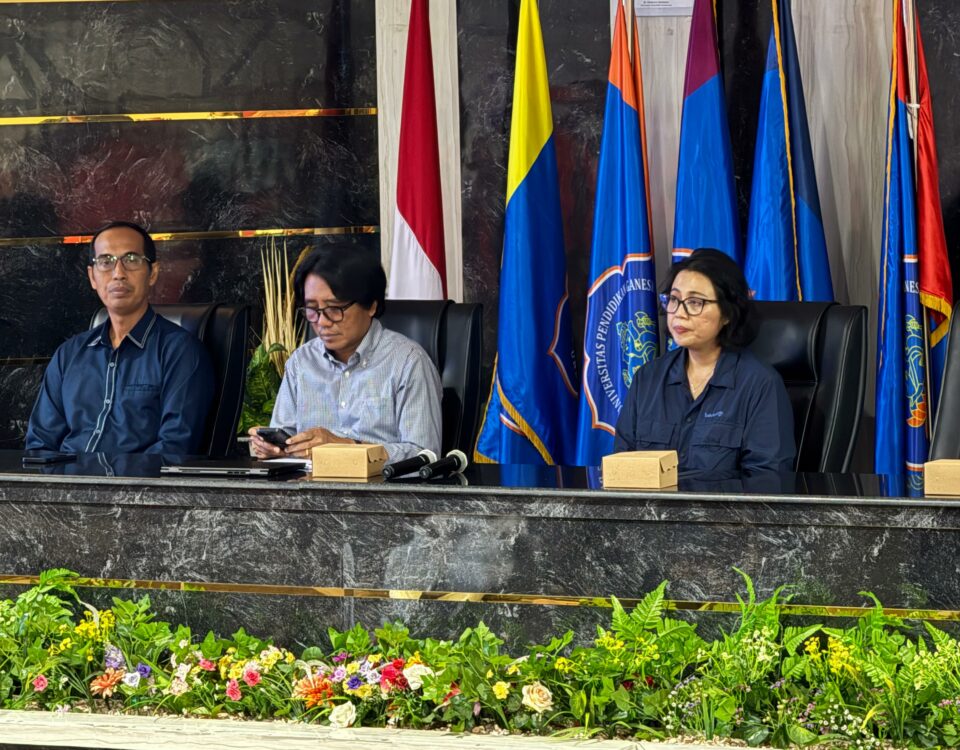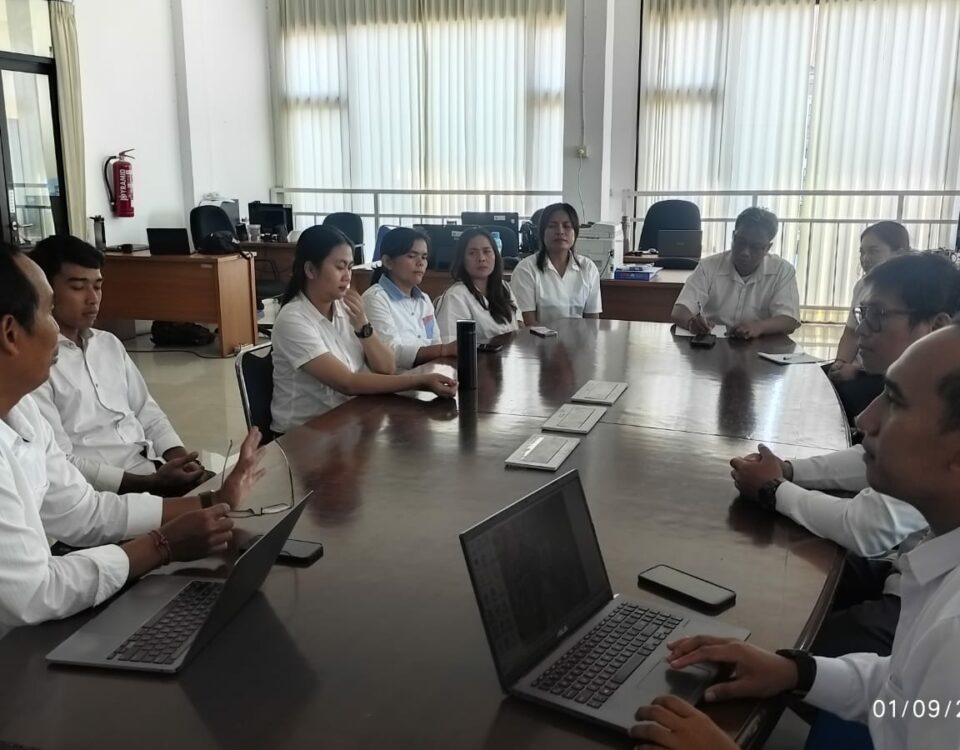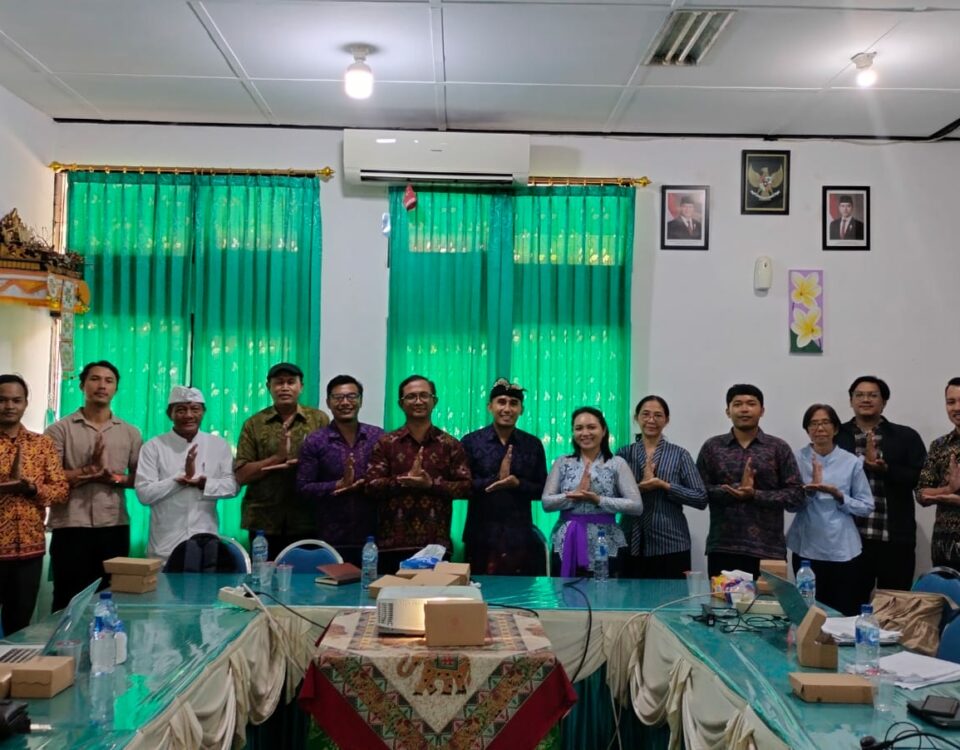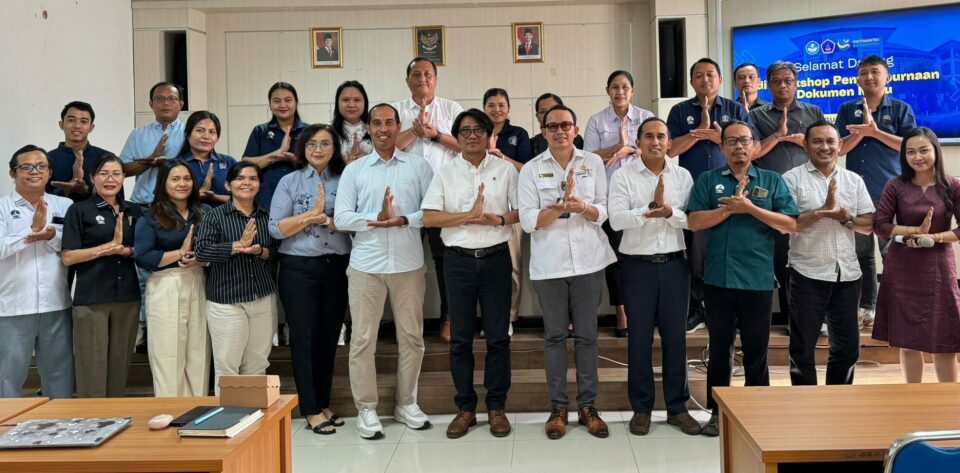Singaraja – The Biology Department at the Faculty of Mathematics and Natural Sciences (MIPA), Ganesha University of Education (Undiksha), successfully carried out a two-day Field Assessment (AL) for program accreditation on July 14–15, 2025. The assessment, held at the MIPA Faculty Seminar Hall, brought in two assessors from LAMDIK—Murni Ramli, S.P., M.Si., Ed.D., and Prof. Dr. Dra. Dwi Wahyuni, M.Kes.—to conduct a comprehensive evaluation of academic practices and program governance.
The session officially opened with the Indonesian national anthem and a joint prayer, followed by remarks from Undiksha’s Vice Rector for Academic Affairs and Cooperation. In his address, he highlighted the university’s history, vision and mission, and progress toward excellence grounded in the Tri Hita Karanaphilosophy. He also underscored Undiksha’s achievements and its extensive national and international collaborations, including faculty and student participation in global programs.
Interviews with the assessors were dynamic, focusing on indicators of vision and mission achievement, the implementation of an ethnoscience-based curriculum rooted in Tri Hita Karana values, academic quality assurance systems, and evaluations of partnerships and internationalization efforts. The assessors stressed the importance of consistency between reported data and on-the-ground realities, while also recommending a structured roadmap for collaboration and the comprehensive enforcement of SOPs within the academic environment.
On the second day, the assessors delivered detailed feedback. Among the key findings: the Biology laboratories had not fully met safety standards, with some wooden-based equipment and insufficient safety tools such as fire extinguishers. They recommended establishing a Safety Management System team to strengthen lab safety. Additionally, some students were found to have limited awareness of available services and procedures, highlighting the need for stronger communication and outreach.
In terms of strategic documents and SOPs, the assessors suggested sharpening the articulation of the department’s vision and mission into a structured roadmap. They also advised more active dissemination of SOPs beyond the university’s website. For partnerships and internationalization, the department was encouraged to develop a clear roadmap encompassing national, international, and industry collaborations, alongside strategies to attract international students.
In the area of student affairs, recommendations included expanding scholarships and subsidies for high-achieving students, while also strengthening their understanding of academic advising SOPs. For faculty and staff, the assessors suggested aligning placements with qualifications, encouraging structured career development, and supporting faculty in filing patents. The Semester Learning Plans (RPS) were also recommended to be better integrated with research outputs and community engagement activities to enhance the quality of teaching.
This Field Assessment marks a crucial step for Undiksha’s Biology Department in advancing academic quality and reinforcing its position in meeting higher education standards at both national and international levels.

